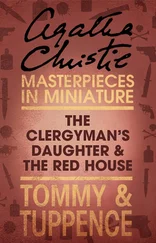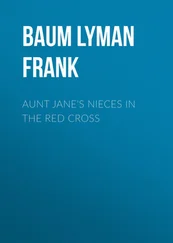I let her go. “Svetlana…”
“No,” she snapped. “ You did this, Peter—you and that spy Dick Thompson.”
“Svetlana, that’s not true.”
“It is true.”
“You’re upset. I understand, but you have to believe me, it isn’t what you think.”
“What I think ?” She practically spit at me. “I’ll tell you what I think. I think my son wanted to come to me here in America. After everything I did to him, leaving him and his sister in Russia, he wanted to come. But you and your spy friend, you sons of bitches, decided this story cannot be true—no, it must be the fucking KGB that told my son to ask for me. So you slam the door on him for good. And now he’ll never come. Never! I will never see him again in my life.”
“Things can change.”
“Not this. These things will never change. You have always known it. You and the spy.”
“Stop saying that.”
“I read the fucking documents, Peter! I’m not an idiot. I know proof when I see it.”
“Calm down and please just listen to me.”
“I have listened. My mistake. You and your fucking CIA.”
“Goddamnit, you know who I am. I’m not the CIA.”
“No?”
“Svetlana—”
“No more.”
“No more what?”
“Get out of my house.”
“Svetlana, listen to me—”
“I said get out of my house, damn you—you and your fucking lies!”
She hurled the CIA documents in my face: I felt a nick on my cheek, and watched the papers flutter helplessly to the floor.
—
And I tell you, whoever you are, that as in a nightmare, I could not believe what was happening. That still to this day, forty years later, I am left with the indelible image of myself getting down on my knees to retrieve those spilled pages from her floor, my tears frozen solid behind my eyes and my voice shamefully murmuring, “I’m sorry, Svetlana, I’m so sorry, but I can’t leave these here.”
“What the hell did you say to her?” Dick Thompson barked in my ear three days later, the moment I picked up the phone in my office.
“Beverly, I’ve got it.” I heard the click as my secretary switched off the line. “Nothing,” I told Dick bitterly. “I did what you asked me to do. I showed her the documents.”
“Well, she’s gone.”
“What do you mean she’s gone?”
“I mean, Peter, her house is empty. Not a stick of furniture left. And there’s a For Sale sign on the lawn. And we don’t have a fucking clue where in the world she’s taken her son, or what she plans to do.”
Thinking I was about to be sick then, I hung up before he could say any more.
14 October 1975
Oceanside, CA
Dear Peter,
I understand if you may not wish to hear from me. I am very sorry that I took Yasha and disappeared so abruptly from Princeton after I threw you out, and that you have not heard from me until now. I have been in a state of almost perpetual confusion, with no real sense of clarity to offer you, which has made me too ashamed to write.
I have not been healthy in my mind, exactly. But I am trying.
Here is what I wish to say, my dearest, if you will listen:
Though I’m gone, I do not forget you. I can never forget you. What I cannot seem to do is love you well enough to stop running.
Your loving Svetlana
17 December 1975
Carlsbad, CA
Dear Peter,
Merry happy Christmas—or what you and Martha and not-so-little Jean make of non-Jewish holidays these days, I myself am not so clear on this point anymore, or anything else. Here in Paradise, on the other hand, where Mr. Santa Claus wears sunglasses and surfing shorts, we are in states of perpetual ennui. So I am told. And that is the polite word.
California is cheaper than New Jersey, but not so cheap that money grows rather than disappears. I would give you our latest address and hope you visit but we are moving again soon. Because it’s on the ground floor this apartment is gloomy and too open to invasive neighbors who are not always what they say. However, one of my nice women at Christian Science church here told me about this apartment on the other side of town that could be better for us. I will go tomorrow and look. You will sniff at this idea of Christian Science, Peter—I can hear you, sniff-sniff—and I will not claim I believe all they preach or do, but there is structure to their rules and regulations that I find helpful with my drinking too much and even, let me say, some days I find it almost consoling. Some form and structure I mean in this freewheeling universe of California sun. On this boundless earth we must find help where each of us can, do you not agree? I have removed the vodka from the glove box of my Dodge. I am no longer waking myself at night with helpless questionings, spoken aloud, to my dear nurse, Alexandra Andreevna, about when my mother is going to come home to me and whether she was still bleeding after she was dead. I am trying not to torture myself too much with thoughts about how one day on the banks of the Ganges I managed to convince my brain that to leave Josef and Katya in Moscow was to free them—what a martyr I thought I was—when in fact I might as well have locked them away in Lubyanka with my own hands.
No, for my mental health, I must try to give time now only to those thoughts of daily motherhood that prove me trustworthy in my own home. Otherwise how can I be alone with Yasha, this innocent child who needs me most urgently? And he with me? How can he rely on me to do what is right and good? What will we do?
I tell you, my dearest Peter, and only you, that every day I fear they will come and take him away from me. Every single day. And every single day, sometime or else, a part of me believes it would be better for him if they did.
Your loving Svetlana
Two days before Christmas, 1975: I caught the last train from the city bearing late-found gifts for Martha and Jean. Home past ten, I tucked the Bergdorf’s bag in the foyer closet with my coat and scarf, and entered the kitchen, expecting to find, as ever, a single place setting and a meatloaf sandwich.
“Sit down, Peter,” Martha said in a quiet, firm voice.
On the table before her was a letter and a half-torn envelope. From two yards away, instantly, I recognized Svetlana’s handwriting.
I cleared my throat. “Martha…”
“Do you honestly think, Peter,” she interrupted me, “that I don’t know?”
She was dressed as though we’d planned an evening at home together—black slacks and brown cashmere sweater, proper heels—but her hair, always carefully arranged, had not been brushed, and her eyes were red.
“You always wanted to be a hero,” she said. “I know that, even if you don’t. You probably never thought you’d get the chance. Always so good and quiet. The clever stoic. Afraid to get sent out of the classroom for saying the wrong thing. You’ve always hated that about yourself. And here she comes as if on cue, the tyrant’s daughter, the little Slavic princess making her dash for freedom, in need of a trusted counselor. I mean it’s almost like you invented her. Sexy. Outspoken. Demanding. Just crazy enough to make you feel needed and important. The kind of gross egotism that for a little while, if you’re blind, might get mistaken for courage.”
“Martha…”
Martha raised a hand. “I’m not finished. You think she can love you back the way you want to be loved? Think there’s room in that mountainous ego of hers for you to even get a toehold? You’re not used to asking much for yourself. You’re not very good at it. And you’re going to start now, in middle age? Is she even listening? Does she even give a damn?”
Читать дальше












